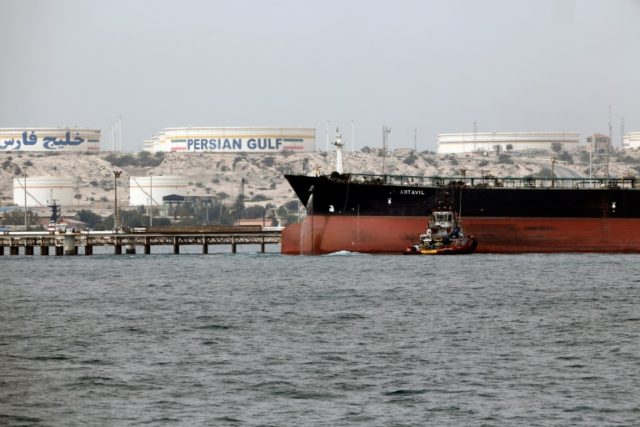Iranian Rear Admiral Mahmoud Mousavi on Monday responded to U.S. warnings that Iran’s oil tankers are a “floating liability” by promising to protect them with military force.
“Causing any trouble for transportation and trade through international waterways is contrary to international law and basically, such measures would not be desirable or acceptable,” said Mousavi.
“The Armed Forces have the necessary capabilities to protect their interests in various areas. Experience shows that we have proceeded with our maritime trade over the past 40 years despite threats,” he said.
U.S. Special Representative for Iran Brian Hook warned last Wednesday that Iranian tankers are a “floating liability” in waterways “from the Suzel Canal to the Strait of Malacca and all choke points in between.”
Although Iranian media and officials appear to be taking Hook’s comments as a threat to attack or seize the tankers, he explained that sanctions would force Iran to take out poorly-financed domestic insurance policies on their vessels, leaving port operators around the world on the hook for huge financial damages if the Iranians cause an accident.
“Countries, ports and canal operators and private firms should know they will be likely responsible for the costs of an accident involving a self-insured Iranian tanker,” he warned.
Hook further noted Iranian aging ships become accident-prone because of the tactics they use to evade sanctions, such as turning off their location transponders.
“These transponders are designed to maximize visibility at sea and turning them off only increases the risk of accidents and injuries. Self-insured Iranian tankers engaging in unsafe behavior, with many tons of crude oil on board, is courting environmental and financial disaster,” he said.
The Iranians blame America for forcing them to resort to such measures and are reportedly preparing to file a complaint with the International Maritime Organization against “cruel U.S. sanctions and restrictions on maritime transport.”
Iranian First Vice President Eshaq Jahangiri claimed on Monday the United States is losing its showdown with Tehran.
“No government has supported the US sanctions against Iran, except the Zionist regime and some regional governments,” Jahangiri asserted, making a derogatory reference to Israel.
He said the Iranian government has “devised plans and solutions to minimize the impact of the sanctions and pressures on the country’s economy.”
The Wall Street Journal argued on Monday that Iran sanctions are producing a windfall for supertanker operators, including a good deal of revenue for Iran’s state-run tanker company, because oil shipments have been shuffled around so dramatically:
A U.S. decision to grant waivers to eight countries that allow them to continue buying Iranian crude is softening the impact of the sanctions and providing needed revenue to state-run National Iranian Tanker Co., the country’s flagship shipping company.
Singapore and London brokers say around 65% of NITC tankers are moving oil cargoes to the countries with U.S. waivers, including China, India, Japan, South Korea, Italy, Turkey and Greece.
These markets traditionally buy around 70% of Iran’s oil exports. The White House wants the flow to wind down, but tanker brokers say that is unlikely to happen soon, as a halt could push oil prices to around $100 a barrel, potentially undermining U.S. economic growth.
The brokers said more NITC ships could be used as other tanker operators stay clear of Iran, fearing punitive action by Washington. NITC owns 38 VLCCs out of a global fleet of 733, and several smaller tankers. The company didn’t respond to requests for comment.
Some analysts noted the tanker industry generally has trouble turning a profit and the current revenue spike is a temporary “dead cat bounce” once seasonal demand subsides and the new shipping routes settle in.

COMMENTS
Please let us know if you're having issues with commenting.